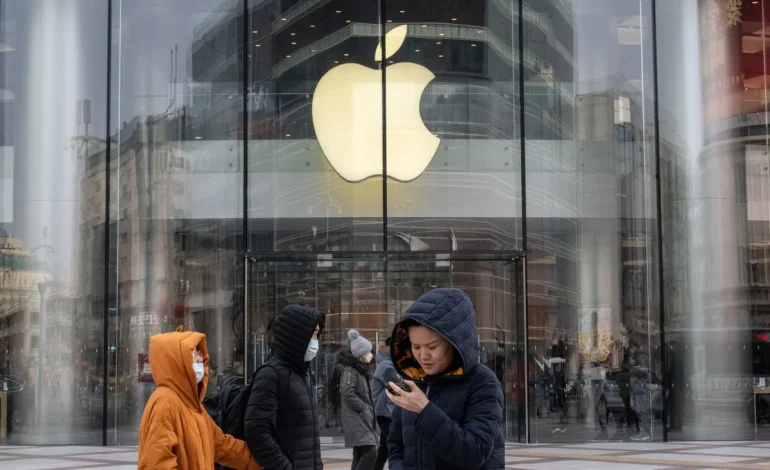Apple Faces Turbulence Amid Tariff Uncertainty as Stock Takes a Hit

Apple Inc. is grappling with significant stock market volatility following the announcement of steep tariffs by President Donald Trump on China, Vietnam, and India—countries crucial to the tech giant’s supply chain.
Since the tariff announcement last week, Apple’s shares have fallen 19%, marking its worst three-day performance since 2001. This sharp selloff wiped out over $637 billion in market value and spiked the company’s stock volatility to unprecedented levels.
Investors are now facing a difficult question: How will Apple navigate the escalating tariff situation? As Anthony Saglimbene, chief market strategist at Ameriprise Advisor Services Inc., pointed out, Apple is caught between a tough decision—either raise prices, which could reduce demand, or absorb the additional costs, which could hurt its earnings and margins. This uncertainty has led to a decline in investor confidence.
Adding to the complexity, the situation worsened with China’s retaliation, which included the imposition of a 50% levy on US imports. Analysts are now left grappling with how these tariffs, combined with a slowdown in some of Apple’s key growth markets, will impact margins, consumer spending, and stock performance.
Despite the recent turmoil, some analysts remain optimistic about Apple’s future prospects. The average price target from analysts suggests a nearly 33% rise in Apple’s stock over the next 12 months. Additionally, the stock’s relative strength index is currently at one of its lowest levels in the past decade, indicating that it may be oversold. As Andrew Zamfotis, a portfolio manager at Ami Asset Management Corp., stated:
“Now the froth is out and I think it looks attractive.”
The key variable in Apple’s future will likely be how the tariff situation plays out. If the company receives an exemption, similar to the relief it saw during the first Trump administration, it could trigger a significant rally in its stock price. On the other hand, if the tariffs remain or escalate, analysts warn of potential severe impacts on the company’s earnings, with some even suggesting an “economic Armageddon” scenario.
Currently, most analysts are holding steady on their estimates, as it’s too early to make major changes to earnings projections. However, should tariffs remain in place or increase, the financial outlook for Apple could change quickly. Analysts are also closely watching Apple’s upcoming quarterly earnings report on May 1 for further insights.
The ongoing tariff uncertainty is also impacting consumer behavior. In anticipation of higher prices, many customers have rushed to purchase new iPhones ahead of any price hikes, as seen in stores across the US Reports suggest that the cost to manufacture an iPhone could rise by as much as 45% due to the new tariffs, which could significantly impact Apple’s profit margins.
Given its heavy reliance on China for iPhone production, Apple is particularly exposed to the risks posed by these tariffs. While the company has taken steps to diversify its production to countries like India, Vietnam, and Thailand, these countries are also subject to tariffs, further limiting Apple’s flexibility.
With input from Bloomberg, CNBC, and the Wall Street Journal.









The latest news in your social feeds
Subscribe to our social media platforms to stay tuned